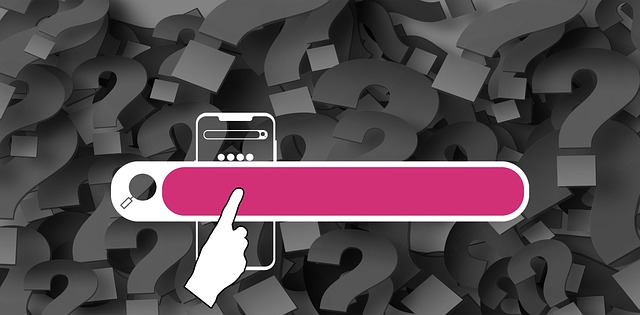AI chatbots are transforming e-commerce on the popular Shopify platform by providing instant, personalized customer support through a 24/7 virtual assistant. These intelligent tools automate tasks, offer product recommendations using natural language understanding, and guide customers through checkouts, revolutionizing online shopping. Integrating an AI chatbot via a search app boosts engagement, streamlines support, and enhances the user experience, driving conversions and giving businesses a competitive edge in the Shopify marketplace. Measuring success through KPIs is crucial to optimizing performance and improving the overall customer journey.
- Understanding the Rise of AI Chatbots in Ecommerce
- Benefits of Integrating an AI Chatbot on Your Shopify Store
- Implementing and Optimizing Your Shopify AI Chatbot
- Measuring Success: Tracking Key Metrics for Your Ecommerce Chatbot
Understanding the Rise of AI Chatbots in Ecommerce

In today’s digital age, AI chatbots have emerged as a powerful tool for enhancing customer experiences on e-commerce platforms, particularly within the popular search app Shopify. The rise of AI in e-commerce is driven by the need to provide instant, personalized support and facilitate seamless user journeys. Chatbots offer 24/7 availability, enabling customers to get quick answers to their queries without waiting for live agent assistance.
By integrating AI chatbots into Shopify stores, businesses can significantly improve customer engagement and satisfaction. These virtual assistants can understand natural language queries, offering product recommendations, answering frequently asked questions, and even guiding users through the checkout process. This level of interactivity and customization is transforming how customers interact with online shops, making the shopping experience more efficient and enjoyable.
Benefits of Integrating an AI Chatbot on Your Shopify Store

Integrating an AI chatbot on your Shopify store offers numerous benefits that can significantly enhance your customer experience and drive sales. These intelligent assistants provide 24/7 support, instantly addressing customer inquiries, product recommendations, and order updates, even when your team is offline. By automating routine tasks, they free up time for staff to focus on more complex issues, improving overall efficiency.
Moreover, AI chatbots can personalize the shopping journey by leveraging customer data from previous interactions and purchase history. They can offer tailored product suggestions, increasing the likelihood of conversions. Through natural language processing, these bots understand customer needs better, ensuring they direct users to the right products faster, which is crucial for competitive edge in the search app Shopify marketplace.
Implementing and Optimizing Your Shopify AI Chatbot

Implementing a Shopify AI chatbot is a game-changer for your online store, allowing you to enhance customer engagement and streamline support processes. The first step involves selecting a reputable AI chat platform compatible with the Shopify app store. Look for features like natural language processing, machine learning capabilities, and seamless integration with your existing Shopify setup. Once chosen, customize your chatbot’s responses and workflows to match your brand’s voice and customer interactions.
Optimize your chatbot by setting up intelligent triggers and response paths. Train the AI to understand common customer queries and provide accurate, contextually relevant answers. Regularly analyze conversation logs to identify areas for improvement and adjust your chatbot’s performance accordingly. By fine-tuning these aspects, you can ensure that your Shopify AI chatbot offers a personalized, efficient, and seamless shopping experience to potential customers searching for apps on the platform.
Measuring Success: Tracking Key Metrics for Your Ecommerce Chatbot

Measuring success is an integral part of any business strategy, and ecommerce platforms like Shopify aren’t exempt. When implementing an AI chatbot for your shopify store via a search app, tracking key performance indicators (KPIs) becomes crucial to understanding its effectiveness. Metrics such as customer satisfaction scores, response time, and conversion rates can provide valuable insights into the chatbot’s impact on user experience and sales.
By analyzing these KPIs, you can identify areas where your chatbot excels or falls short. For instance, a high customer satisfaction score suggests that the chatbot is successfully addressing client queries, while faster response times indicate improved efficiency. Conversely, low conversion rates might signal a need for fine-tuning the chatbot’s conversational flow or integrating additional sales incentives to encourage purchases. Regularly reviewing these metrics allows you to optimize your Shopify chatbot, ensuring it aligns with your business goals and enhances the overall customer journey.
AI chatbots are transforming the ecommerce landscape, especially on platforms like Shopify. By integrating an AI chatbot into your Shopify store, you can enhance customer engagement, provide instant support, and drive sales through personalized interactions. As you optimize your chatbot, focus on delivering accurate product information and seamless navigation to create a unique and satisfying shopping experience. Through key metric tracking, you can continuously improve your chatbot’s performance and stay ahead in the competitive world of online retail when searching for the best Shopify apps.
